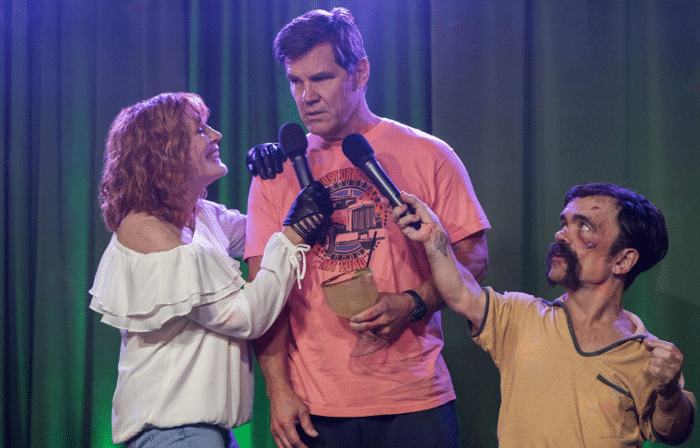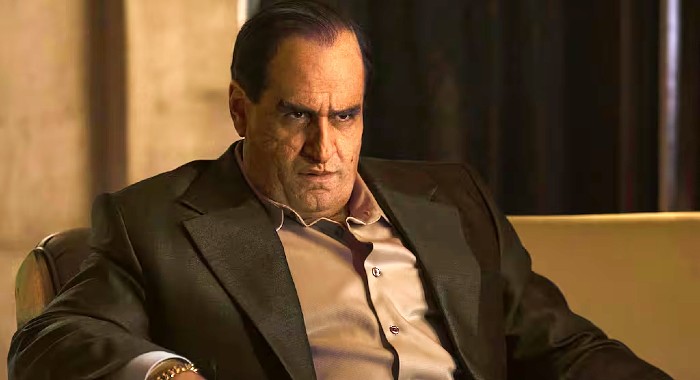

Is Consent Really That Hard To Understand, People?
By Tori Preston | Think Pieces | September 24, 2018 |
By Tori Preston | Think Pieces | September 24, 2018 |

It’s been a rough few days, for anyone who spends any amount of time online. It started when our Fuckface in Chief tweeted this garbage right here…
I have no doubt that, if the attack on Dr. Ford was as bad as she says, charges would have been immediately filed with local Law Enforcement Authorities by either her or her loving parents. I ask that she bring those filings forward so that we can learn date, time, and place!
— Donald J. Trump (@realDonaldTrump) September 21, 2018
… which inspired an outpouring on social media, as victims of sexual assault shared the reasons why they stayed silent, under the hashtag #WhyIDidntReport. And there are a lot of lessons to be learned from their stories, which reinforce the things most of us already know to be true. Victims may face repercussions or don’t think they’ll be believed, or they blame themselves, or they’re afraid others will blame them. Maybe they simply weren’t emotionally capable of opening up about their experience, or they were in denial. Maybe they were too young to even understand what they’d experienced, or the consequences of it. Maybe the person who attacked them was a family member, or friend, or colleague, and they still had to face them every day. The reasons are endless, and important, but also? It’s shit like that tweet up above that places the burden of responsibility back on the victim, rather than the person who hurt them. The thing about reporting an assault is that you have to relive it, over and over again. It doesn’t just keep the wound open — it can make it worse. A victim has to make themselves vulnerable all over again, every time they talk about it.
And reading those responses online, people laying themselves bare because there’s a chance that an alleged attempted rapist might end up in a seat of power where he can set legal precedents about what we do with our bodies, honestly kinda broke something in me. I wasn’t angry, I wasn’t hurt, I wasn’t disgusted. I was just confused. What is so fucking hard for some people to understand here? Why does it take a sea of voices to be believed? What is so difficult to grasp about sexual assault that makes us treat victims and perpetrators differently than with any other crime?
Answer: consent is confusing or something, apparently.
Not to, like, you or me. We get it. But that seems to be the thing that’s gumming up the works for a lot of folks out there. Because the thing is, sexual assault is a crime that hinges on consent. Under other contexts, any of those acts wouldn’t be criminal. They would just be… sex. Something we’re all built to engage in, and typically enjoy, and in fact the future of our species depends on our continuing to engage in it (whether or not we enjoy it). Saying the victim of a robbery was asking for it doesn’t somehow negate the robbery itself. Nobody says “The problem with that stabbing was that the victim didn’t consent to it.” Attempted murder is attempted murder, and while lawyers can quibble in court over whether the injury was intentional or accidental, the nature of the act hinges on the perpetrator’s state of mind, not the victim’s.
It all came into focus for me when I thought back to those pedophile apologists who crawled out of the woodwork to share their very upsetting views in the comments of my Shane Black story recently (you know, the one about how he keeps casting that one registered sex offender in his movies). One person said something along the lines of, “The age of consent should be lowered to around 14 or just after puberty, because once your body is developed you’re an adult in the eyes of nature.” And I was floored, because this! This person right here! This is the kind of asshole who doesn’t understand the difference between what a body can do and what a mind wants to do. The reason the age of consent or age of majority isn’t the same as puberty is because, in this case, society acknowledges that physical and mental maturity are two different things. So different, in fact, that just because a 14-year-old can get pregnant, it doesn’t mean they are able to fully understand the consequences of that — how it will impact their life, and the responsibility they’ll bear to the child — and thus, their “consent” to sex is uninformed and meaningless. Legal adulthood has nothing to do with baby-making, because making babies isn’t all that being an adult means. We don’t let 14-year-olds vote, or drive, or drink, or go to war either, because we know they can’t possibly grasp the full implications of those acts and thus aren’t able to conscientiously shoulder the responsibility.
For adults who can understand the consequences of their actions, they have the option to consent to sex. And the reason why “enthusiastic consent” is a buzzy term these days is because, sadly, saying “yes” isn’t enough. Consent can be manipulated, and coerced. “No means no” is one thing (that people are still struggling with, let’s be honest), but there are plenty of circumstances in which a person is unable to say no, or says yes to avoid a worse outcome. If they’re too drunk to stop you, that’s not consent. If they’re afraid of what you’ll do if they say no, that’s not consent. And again, it has nothing to do with the act itself. I can agree to being choked or tied up or slapped, and that’s not assault — that’s just my preferred Saturday night, as long as I agreed to it. There are things I’ve agreed to do with partners in the past that I wouldn’t agree to do again — because consent isn’t a blanket thing, and I have the right to rescind my “yes” later on.
Of course, there are plenty of people out there who get off on hearing “no.” There are plenty of rapists who raped knowing exactly what they were doing, and I don’t know what to do about them. But I also think there are a lot of assaulters out there who didn’t hear “no” and took that for a “yes.” Who weren’t pushed away hard enough, who weren’t reported soon enough, and thus believed their encounter must have been de facto consensual. And I’m not excusing them — I’m just saying that THAT is the mindset we need to change. It’s not that we live in a world of criminals going about committing crimes with impunity. It’s that we live in a world where people don’t believe they are criminals at all, and unfortunately it’s up to the victims to not only come forward but to convince the world that what happened really was a crime in the first place. And not just, like, “rough horseplay” or some shit.
You probably know all this, and I’m preaching to the choir. But in this #MeToo era, the conversation has been driven by victims who have had to re-open their wounds to change the world. And I do think it’s changing, slowly, incrementally. The fact that we are having these conversations at all means something. But I look forward to the day when the blame isn’t on the victim anymore, for not speaking up sooner. And the burden isn’t on the victims, to speak up now and try to block an alleged assaulter from ending up on our Supreme Court. I want to get to the point where we all know exactly what sexual assault looks like, and is, and can begin to treat it like any other crime: Something the perpetrator can and should have been aware was wrong all along.
← Hardwicke-ing: Stop Replacing Women Directors With Men On Your Franchises! | Reporter Who Defended Roger Ailes Against Gretchen Carlson Allegations Will Interview Brett Kavanaugh Tonight →
More Like This
Women Changed The Game And The Narrative At This Year's Olympics
Ben Shapiro, DailyWire+, and the Face-Eating Leopards
‘Ripley’ Is What 'Saltburn' Wished To Be
How 'Dune 2' and 'Shōgun' Handle the White Savior
Video Games Are Art and That's Okay

Three Trailers: Polymorphic Pattinsons Vs. Bonkers 'Brothers' Brolin and Dinklage
A New Series Explores the ‘Chaos’ Behind Superhero Franchises
Robert De Niro Couldn't Remember His Lines While Shooting 'Joker'
RFK, Jr. Had an Affair with 31-Year-Old Journalist, Olivia Nuzzi
‘We Live In Time’ Inspired Florence Pugh to Prioritize Her Love Life
Elle King Says Rob Schneider's Apology 'Means Nothing'
Pajiba Love

Where Were You When You Learned About The Penguin's Dong?
Reviews